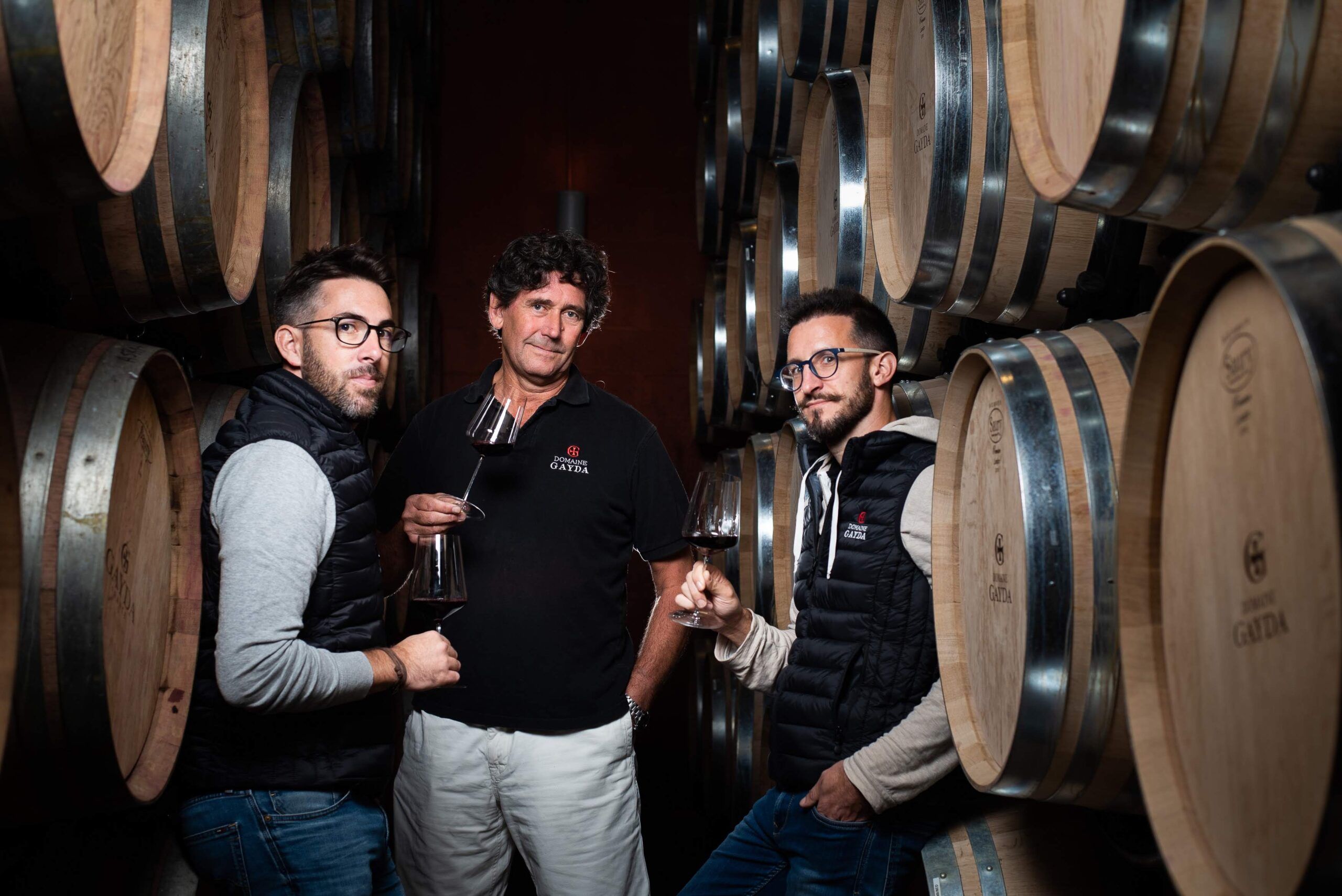“It’s not you telling the market what you want. We are slaves to the market and you have to be incredibly sensitive to it.” That’s how Tim Ford and Domaine Gayda hope to build their exports in the UK and other key markets in the years to come.
It’s now been 17 years since Tim Ford arrived, with his wife Barbara and family, in the heart of the Languedoc Roussillon with what he admits was a bit of a fanciful idea of making wine. But then stepping into the unknown, in a foreign country, where you don’t know a soul, to make a living was not anything new to Ford and his wife.
In 1980 they did the same when Ford decided to use his training as a horticulturist to set up what turned out to be a highly successful, international business growing and selling roses in Kenya, Ethiopia and Zimbabwe, shipping over 50 million roses a year, which warranted chartering three full cargo planes a week to do so.
An enterprise that at one point came to a crashing halt in 2002 when Ford’s land, like all other farm owners in Zimbabwe, was seized by the Mugabe government.
Although clearly a crushing blow at the time it was also the catalyst that forced, and also allowed Ford to consider another career. “We sold what we could,” says Ford, “and then I was looking for something to do.”
Turning flowers into wine
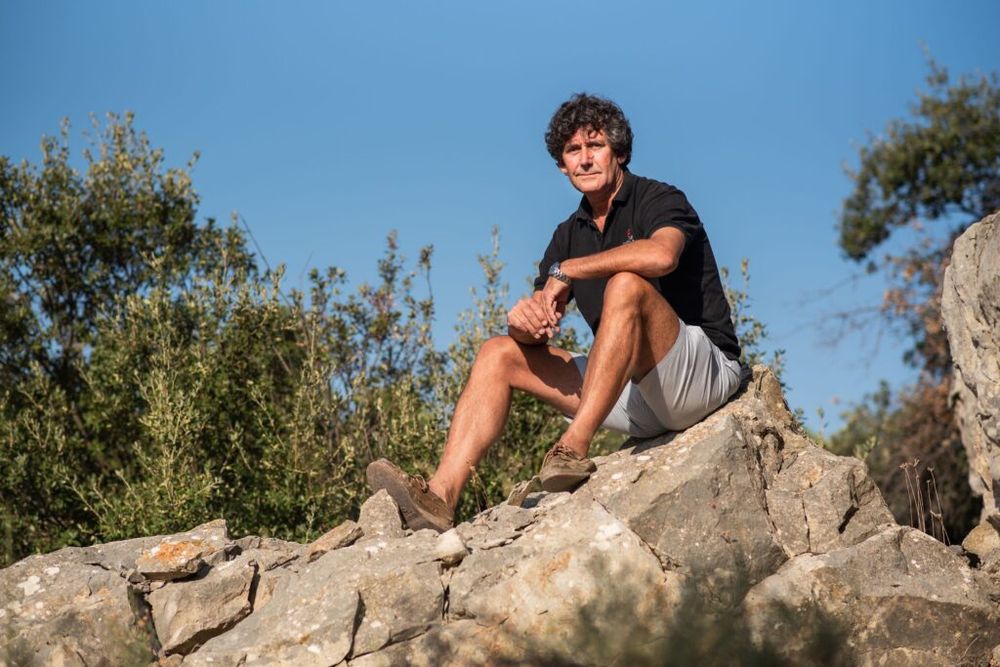
Tim Ford has made the Languedoc his home for the last 20 years with Domaine Gayda
The move into wine, however, was not just done on the spur of the moment, stresses Ford. Being a horticulturist meant he had a natural interest in the land, soils, and, yes, terroir.
He also had an inkling and soft spot for making wine thanks to his father who used to have around 1,000 vines on their family home near Whistable in the south east of England, when as a young boy he would help pick grapes and watch how his dad turned them into homemade wine.
The idea of making wine, therefore, was something he had mulled over as a potential retirement project, but here he was at 43 years of age ready to do far more than think of retiring.
That’s when he had the fortunate opportunity of meeting and forging a close friendship with Anthony Record MBE. Subsequently, in 2002, it was Record who was able to introduce Ford to not just the idea of starting a winery business, but also the best way to do so by taking him to his home country of South Africa and giving him the chance to learn, in particular, from Marc Kent, head of Boekenhoutskloof, in Franschhoek.
It was here that Ford and Record met up with Vincent Chansault, a young winemaker getting valuable experience in South Africa who was ready to move back to France and joined up on the Gayda adventure.
“I can remember we were sitting on a veranda in Cape Town and started doing the calculations of what it would involve setting up a winery in France. It was all back of the fag packet stuff,” recalls Ford.
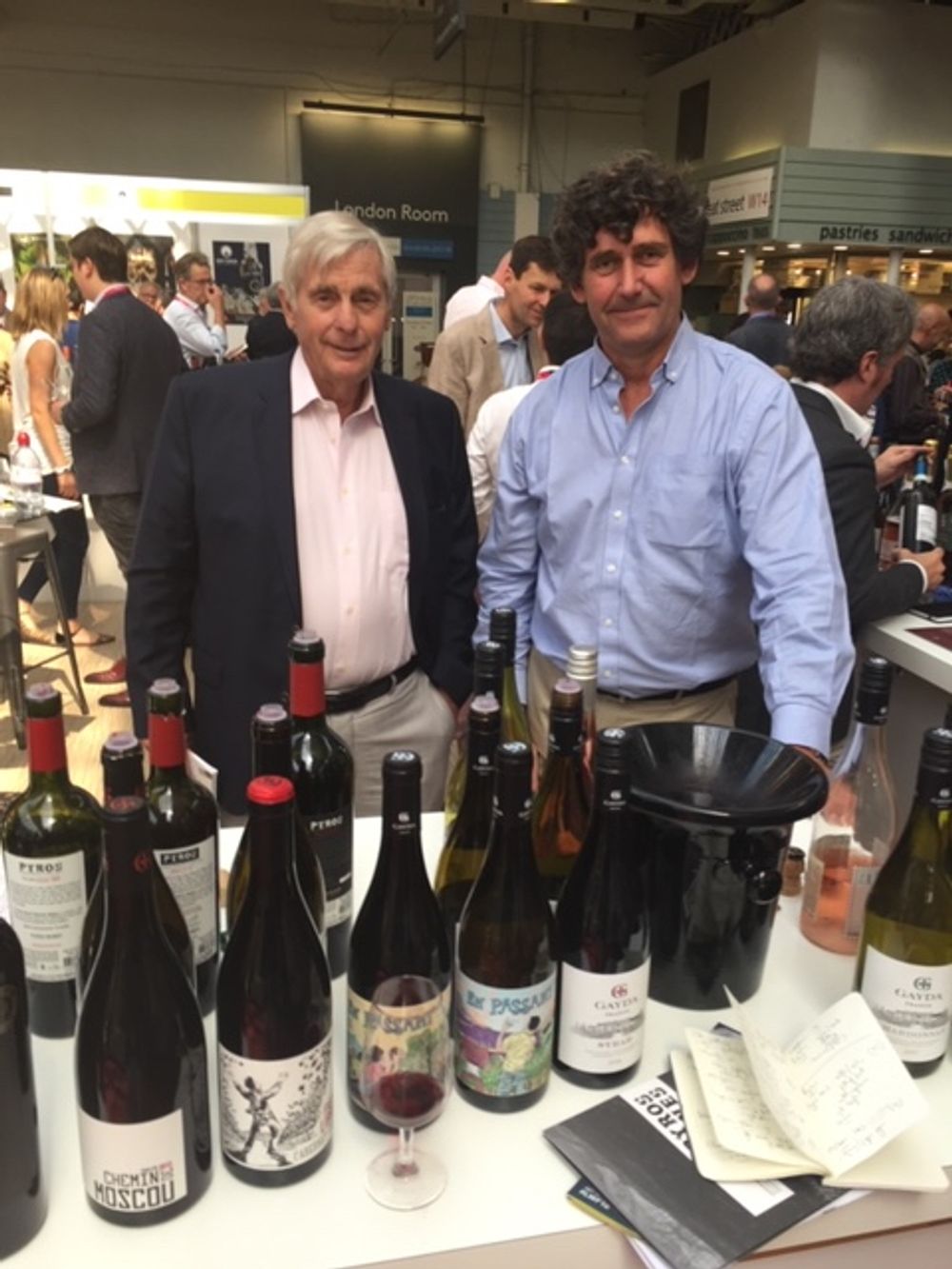
Tim Ford with his mentor and business partner Anthony Record MBE
But as fag packets go it turned out to be the right one as it was enough to give him, Record, Chansault and Kent the motivation and impetus to give what has turned out to be Domaine Gayda a go.
“Close to 18 years later and we have spent double the amount of money we predicted and it has taken twice as long to be profitable and we have all worked twice as hard as we thought we would have to,” says Ford.
“In fact if we knew then what we know now about this project then we would have been too scared to give it a go. We would not have done it. But when you first start out you have all the naivety and innocence to drive you on and make it work.”
It all stems, says Ford, from a classic African expression of “making a plan”. Even if it was done on the back of a fag packet, it was enough to get the wheels in motion.
Strong team
Whilst Ford has his feet on the ground in the Languedoc, Record and Kent were very much part of the business, with Kent advising on many of the key blends, in particular, Chemin de Moscou were he imparted his talents onto the team, specifically Chansault who has been running the technical side at Gayda since its conception.
Part of the “plan” for the business was to find property, land and potential for growth in the Languedoc. “Kent,” says Ford, “was a great asset in this endeavour being a fan of diverse terroirs and seeking out interesting blends.”
“Kent knew this was the best place in the world for us to make wine. You have got so many terroirs to draw on that are within an hour or two of where we based the winery,” explains Ford – at Gayda we have vines on four different types of specific terriors – granite, schist, limestone and sandstone. “If you wanted to find that say in Australia you would have to drive for three days.”
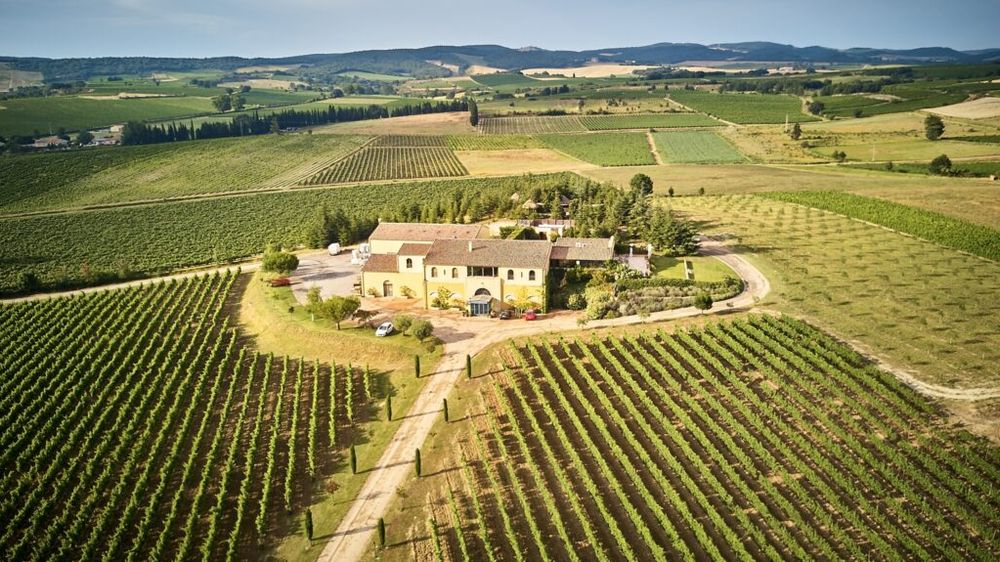
Tim Ford and the team have not been able to go out and tell the story about Domaine Gayda at all the key trade shows it usually attends like ProWein and Wine Paris
Domaine Gayda works on the principle of making the best wines it can by using grapes and vines that it owns, but then also working with the right growers to buy grapes for the blends and wines they want to make.
It is then the skill of the winemaker and the team to take all the pieces of the ‘jigsaw puzzle’ to bring different grapes, matured in separate barrels together. “That’s the way we can make a 100% Syrah, let’s say, from many different terroirs,” says Ford.
Blending expertise
This is where Ford and Chansault have benefited from Mark Kent’s blending skills, he adds. “He is so good at blending and bringing different varieties, from different terroirs and climates together. It is so fascinating to make wine that way. It’s also very efficient as we are working with grapes that come in at different times during harvest so it means in some cases we can use our fermentation tanks three times over and smooths out the workload of the team spreading the harvest period of up to two months.”
Another key lesson he has learnt from Kent is not to get too “attached to your own vines” if you want to make the best wines you can. If that means buying in grapes, then do so. “Don’t get too prissy about your your ones,” he adds.
It also means you are, as a producer, far more open to the idea of trying different terroirs and using grapes way beyond where your winery is situated. It is that ‘quality at all costs’ strategy that has really helped Domaine Gayda make its name in the region.
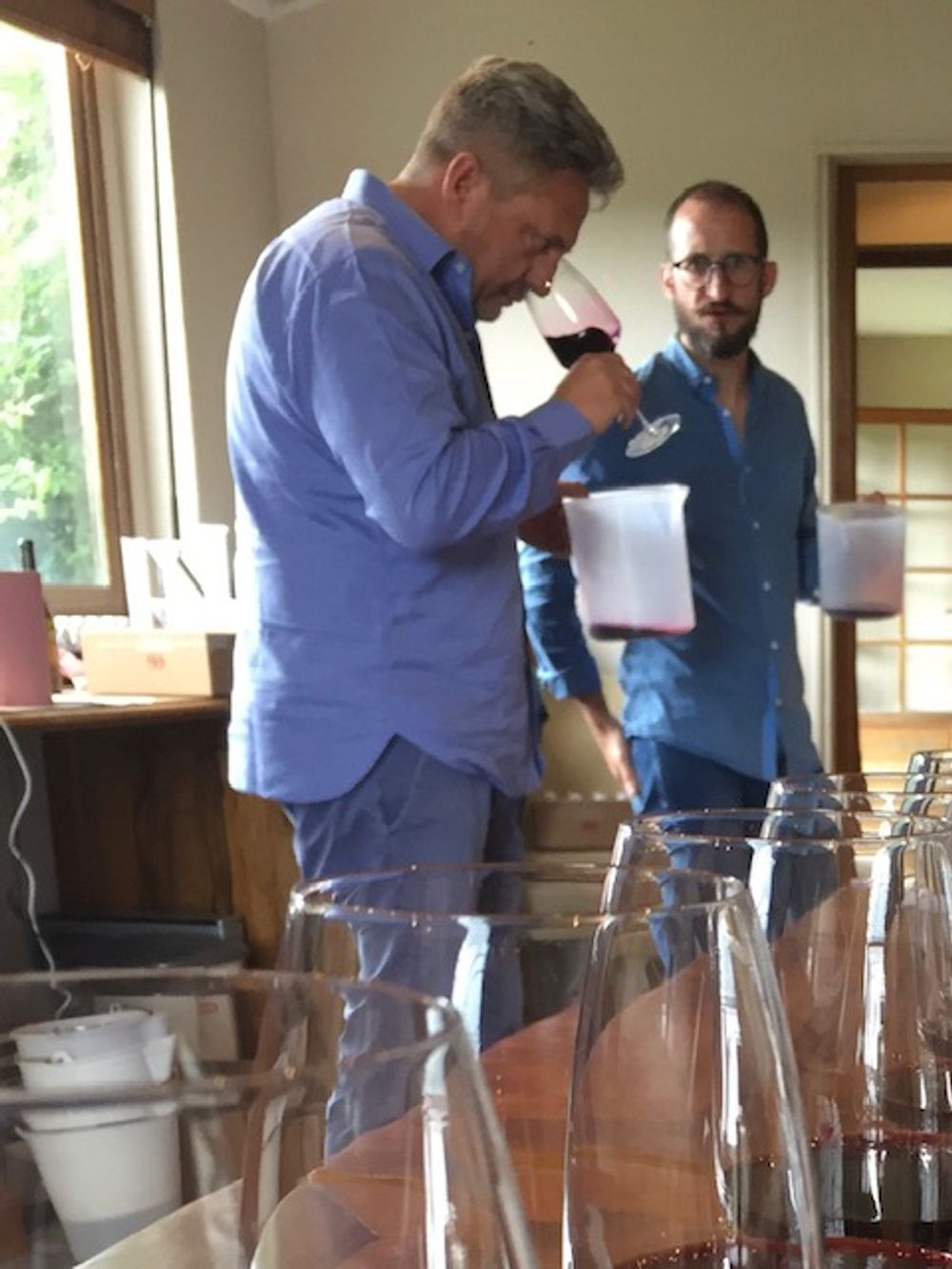
Marc Kent and Vincent Chansault going through one of their blending sessions
It’s also the approach that has helped Kent make the iconic Chocolate Block wine that is very much the ultimate in being the sum of its parts.
“Over the years you learn what each terroir can do. But it means we can end up with 800 barrels, with 800 different samples, which over a two-day period Chansault will go through blind to make up the blend for the year’s Chemin de Moscou.”
Even within that complexity it is possible, Ford says, to recognise certain plots, even blind, and that 80% of the blend is usually around the same from one year to the next.
“The key is to create a style for that particular wine or label, like Chemin de Moscou. Each wine has to remain true to its character with a variance based on the vintage. The wine has to speak like Chemin de Moscou should,” he explains.
It’s also why it has looked to introduce specific grape varieties, most noticeably Chenin Blanc and Cabernet Franc, around the Domaine Gayda property increasing the diversity of the range.
Commercially focused
What was his dad’s hobby has turned into another multinational business for Ford and his family. One that he, and the Gayda team, have built up step by step, listening to the market, working with their customers to grow and make wines they know have a good chance of selling.
So whilst Ford had an ambition to make wine, he also had the business background and nous to make sure he has done so in a profitable and economic way, working with the right people to do so.
They have, if anything, purposefully kept a lead on the business to make sure it sticks to those sound business principles and not get distracted by chasing what might on paper look like a good high volume deal, but would not be in the best interests of the winery’s future.
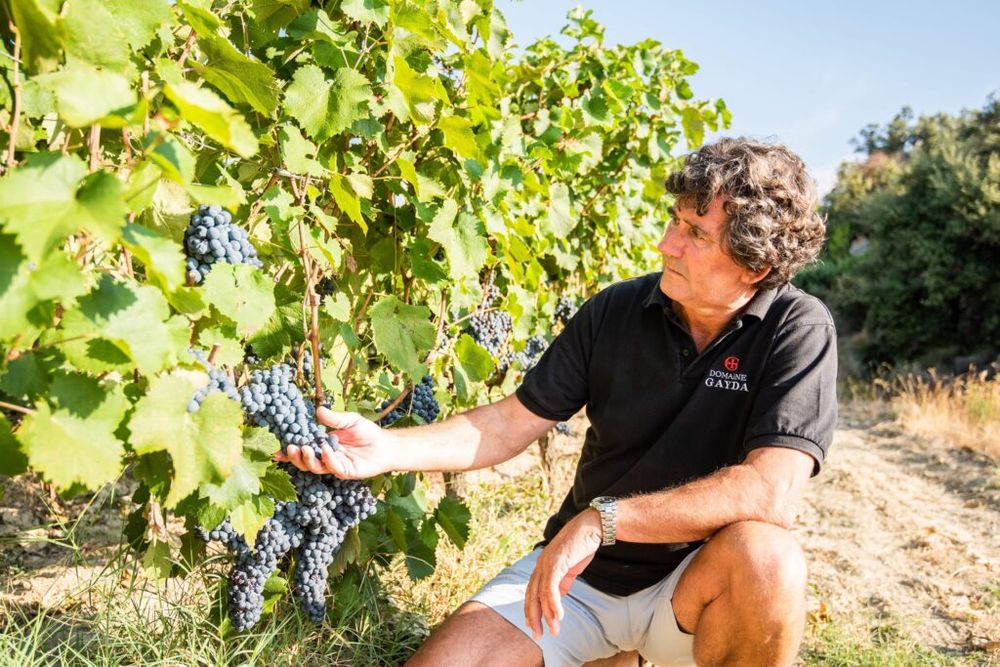
Tim Ford and his team work tirelessly to separate grape parcels and then slowly bring them together into final blends
“To survive you have to over deliver on the product you are producing, right through to the price, packaging and service you offer. You have to over deliver on everything,” says Ford.
Which is why, he adds, “we concentrate so hard on providing value for money in everything we do. After all the market price is not dictated by your cost of production, but by what the customer and consumer is willing to pay for it.”
“The market tells you the price of that wine, that is what dictates everything you do,” he adds. “It’s not you telling the market what you want. We are slaves to the market and you have to be incredibly sensitive to it.”
It’s why Gayda has built up a range of 20 wines over the course of the last 17 years. Wines at different price points, styles and packaging to match different customer needs.
“You have to give your importers wines that they can use to penetrate their market. You also have to give them wines that are going to picque someone’s interest. That’s what we have developed over the years, wines that can satisfy the pyramid of supply and demand. From volume to top end.”
It is also part of growing and developing a “sustainable business,” stresses Ford.
“You have a responsibility to your staff, your clients and to your importers to remain viable, so that they are investing in a sustainable product. That’s why every single cent we earn is reinvested into the business. We are creating a business for the long term. To make great wines you have to do that.”
Growing Chemin de Moscou
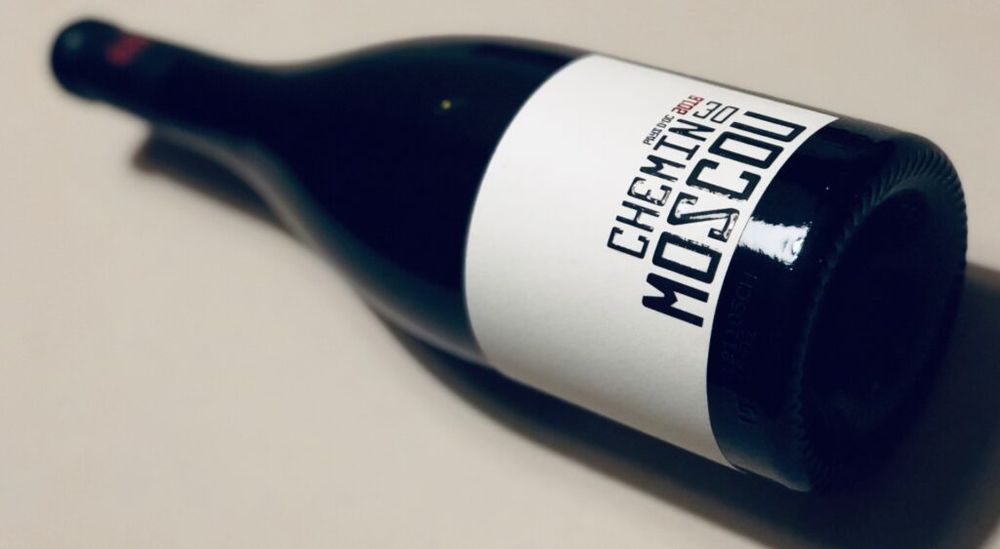
The challenge now for Ford and his team is to really capitalise on the success of the Chemin de Moscou brand
The real point of difference comes in then “creating your own personality” within those wines, something that Domaine Gayda has really achieved to great success with its distinctive, attention grabbing Chemin de Moscou brand that it has been its number one label since it started in 2004.
A wine that sells very well domestically and in mainland Euorpe, has started to get traction in the UK through various existing and new outlets.
The Moscou name actually comes from the site of the famous local “L’arbre de Moscou” on which the winery is built. Its label has not changed in any way since the first year it was introduced.
He believes it is a label that really encapsulates what Kent believes is the most important word in wine business: integrity. The Chemin de Moscou label encapsulates the ‘integrity’ that Domaine Gayda puts into everything it does, says Ford.
The winery has had to buy in more vineyards over the years to keep pace with the growth in the brand. Even more impressive when its recommended selling price in France is €22.5 “That’s pretty damn good at the volumes we sell,” says Ford.
Of its other wines the Figure Libre range, consisting of two mono-cepage wines, Cabernet Franc and Chenin Blanc and the Freestyle blended wines using local varieties such as Marsanne, Roussanne , Grenache Blanc, and Maccebeu for the white and Grenache, Syrah, Mouvedre and Carignan for the red. These wines also stand out for their distinctive labels, and have seen the most growth in recent years.
The En Passant label looks to tell the story of the Domaine through its eye-catching design with each year a new label continuing to tell the story of the winery.
The real top of the pile is the iconic Villa Mon Reve, an appellation wine from their vines in La Livinière based on a north-facing plot of Syrah, only around 2000 bottles of this are made a year
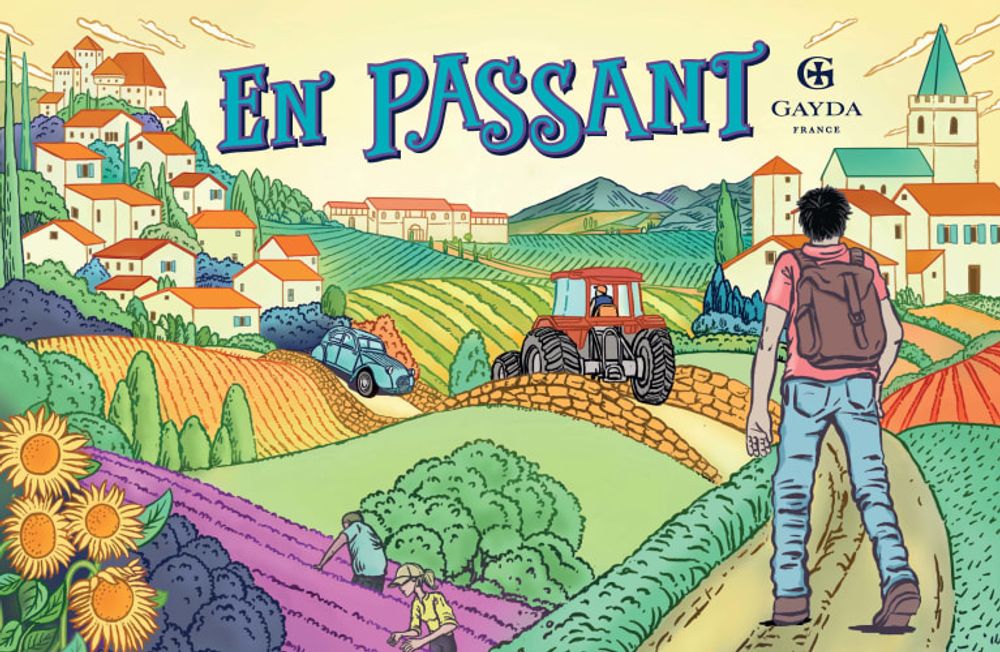
The En Passant label changes every year to tell a different story about Domaine Gayda
Producer partnerships
Domaine Gayda has also been able to make wine for other key producers. It makes, for example, a selection of Languedoc wines for major Argentine producer, Salentein, and has worked similarly with Chapel Down in the UK. “It’s a great accolade when this happens,” says Ford, “and good for the brand association.”
Ford says it is also open to experiment with different styles of winemaking, and has in recent years introduced terracotta amphorae, concrete eggs and a large oak foudre to see what impact they have on the wine styles.
“We are constantly moving and investing in new ideas,” he adds. “But you have to if you want to create your own identity in the Languedoc and you don’t have the instant recognition you get with an appellation and all the awards and traditions that go with it. That’s the challenge you have in the Languedoc, a region with such diverse terroirs.”
It’s also why it has spent a large part of the last 17 years making a reputation for itself at home in the French market. Again it was the advice of Marc Kent who knows, from his own experience in South Africa, how important it was for him to have that solid base and reputation at home before trying to make a name for himself internationally.
“We wanted to do that and have worked hard to get France right first. The UK has been a focus for us in the past, but it has also been a challenge,” adds Ford.
Its French-first approach has worked particularly well in forging close ties with restaurants and sommeliers. For as the sommeliers move on to other restaurants in key cities around the world, they have often come back looking to list Domaine Gayda wines.
“We often,” says Ford, “get distribution in say a top hotel in Singapore because a sommelier who knew us in France recommended us. They are great ambassadors for us.”
Outside of France Domaine Gayda has had the most success in the Netherlands, followed by Belgium, Switzerland, Far East and Germany with the focus now very much on both the UK and the US.
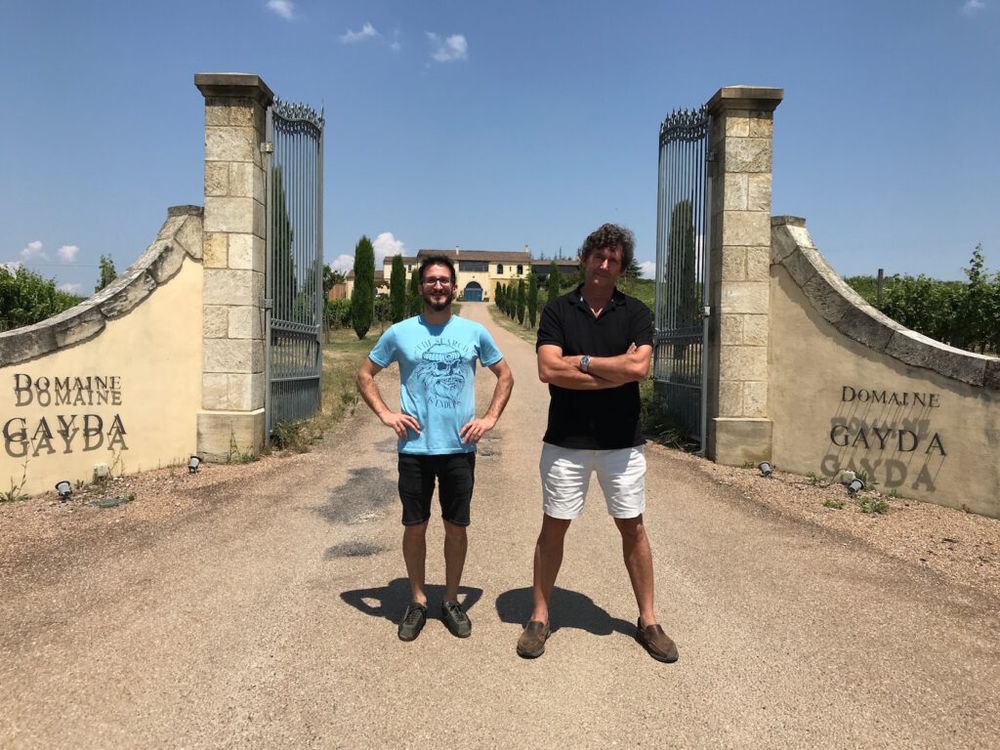
Tim Ford and winemaker partner Vincent Chansault are 100% focused on the needs of the market
Coping with Covid-19
“It’s over nine months now since I have been on a plane, which is the first time in my adult life,” is how Ford looks back on 2020 and the impact Covid-19 has had on all our daily and usual lives.
Which means much of that international expansion has had to be put on the back burner due to Covid-19 as there simply has not been the opportunity to show its wines at key shows such as Wine Paris or ProWein. It remains to be seen whether that will be the case in 2021 as well.
It does, though, mean he has had more time to just concentrate on his vines and his wines and making and selling them. Usually he is also being pulled left and centre trying to help manage and entertain the constant flow of up to 20 trade guests at a time that he can receive at Domaine Gayda in their gîtes complex. These were once outhouses used to provide shelter for travellers passing through what was an old staging post dating back to the mid 1700s and are now luxury cottages.
Whilst it is clearly an important part of how Domaine Gayda manages to forge close ties with the importers, merchants and operators that sell his wine around the world, it has also been a welcome break for Ford, his wife Barbara and the team. “We only use the gîtes for clients, not for tourists, anywhere we can get synergy ” stresses Ford. However Ford also says “actually now I really miss our visitors, let’s hope they come back soon.”
He does, though, admit, it makes him a little “nervous” not being able to attend trade fairs as you are not able to see what your competitors are doing.
“We are like everyone else doing a lot of Zoom tastings and sending a lot more samples out.”
What travel budget they used to have for its sales team has been switched into marketing and tastings. “It’s very important to keep ourselves on the front foot,” he adds. “We have kept in touch with all our buyers all over the world.”
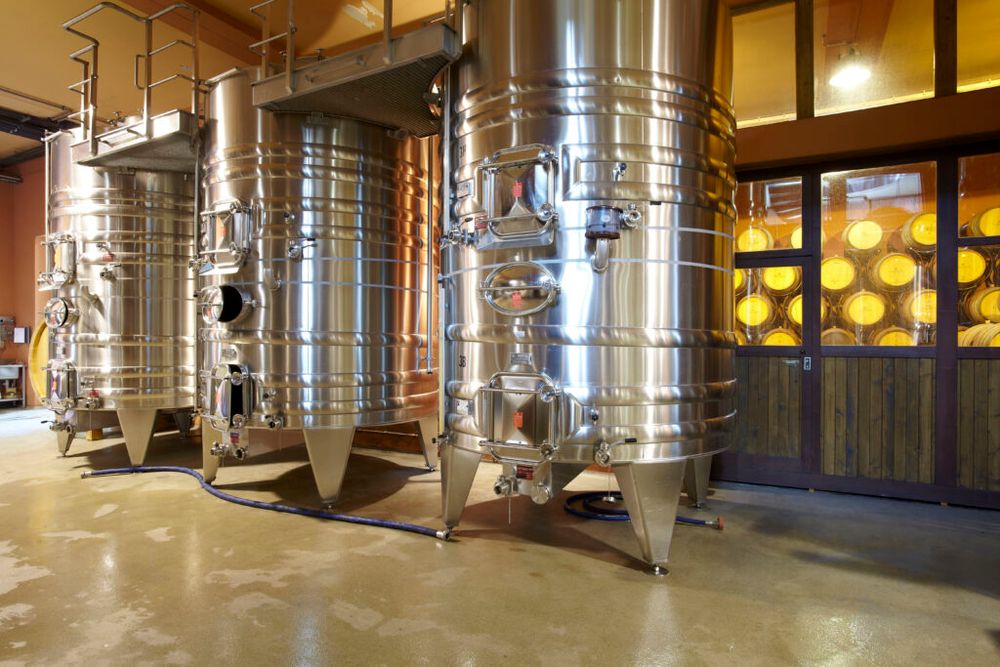
Domaine Gayda has invested year on year to help build the business and grow with demand
What next?
Looking ahead and Ford says it is keen to look at how it can build its exports and find more strategic partnerships with importers and operators in different markets. Be it offering their own wines or working with them on exclusive wines.
But he will always be guided by those in the market who know the best way to proceed. “The people who understand the market best are the ones in the market,” he says.
In order to keep one step ahead of any potential export growth Domaine Gayda is also buying up more vines where it can in higher altitude areas and planting a wider range of native grape varieties to keep in step with changing climate conditions that are stretching resources, and lowering yields in some of the more traditional winemaking areas.
Very much in keeping with the overall sustainable growth strategy of Domaine Gayda.
